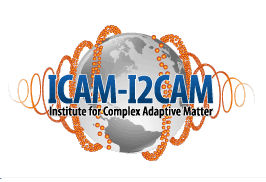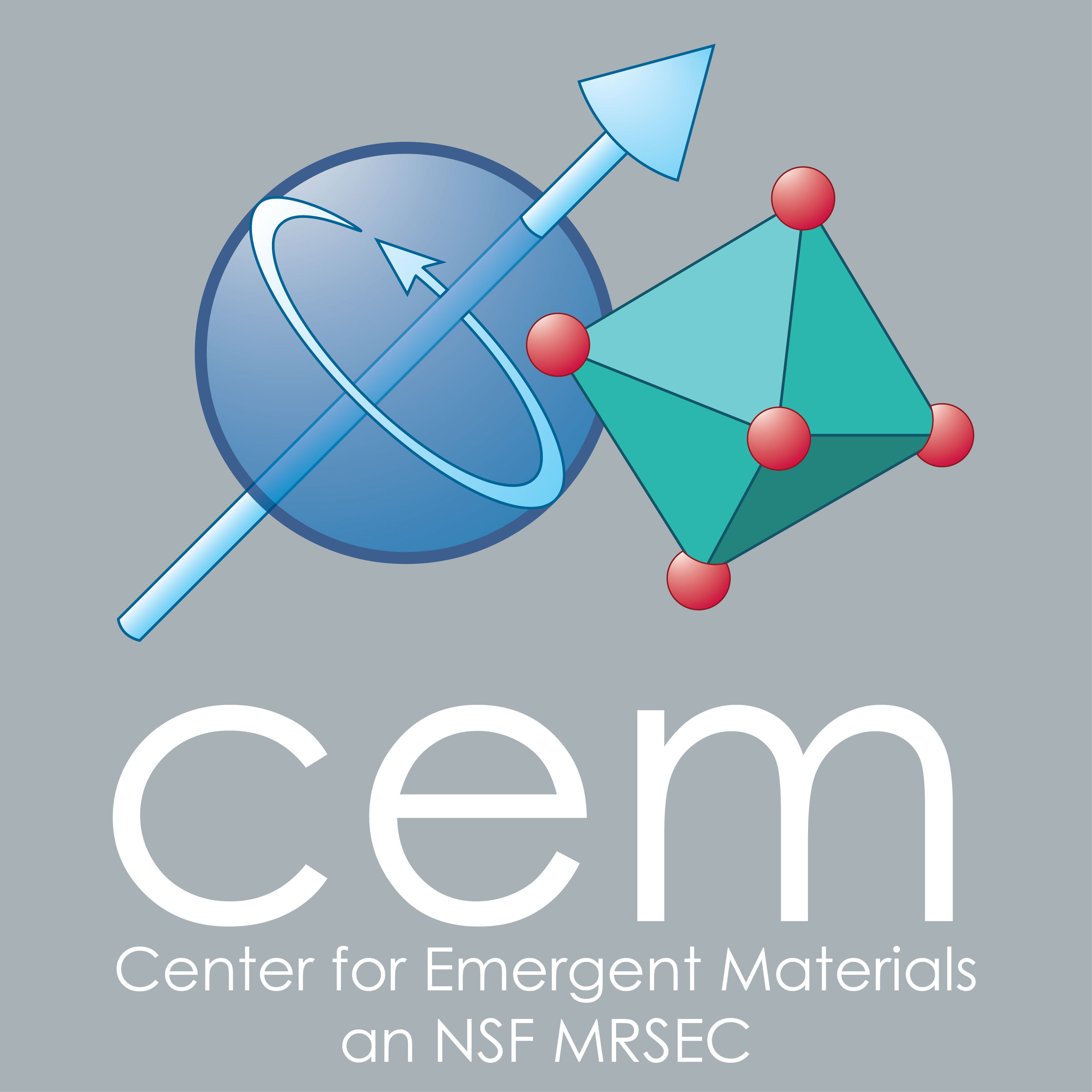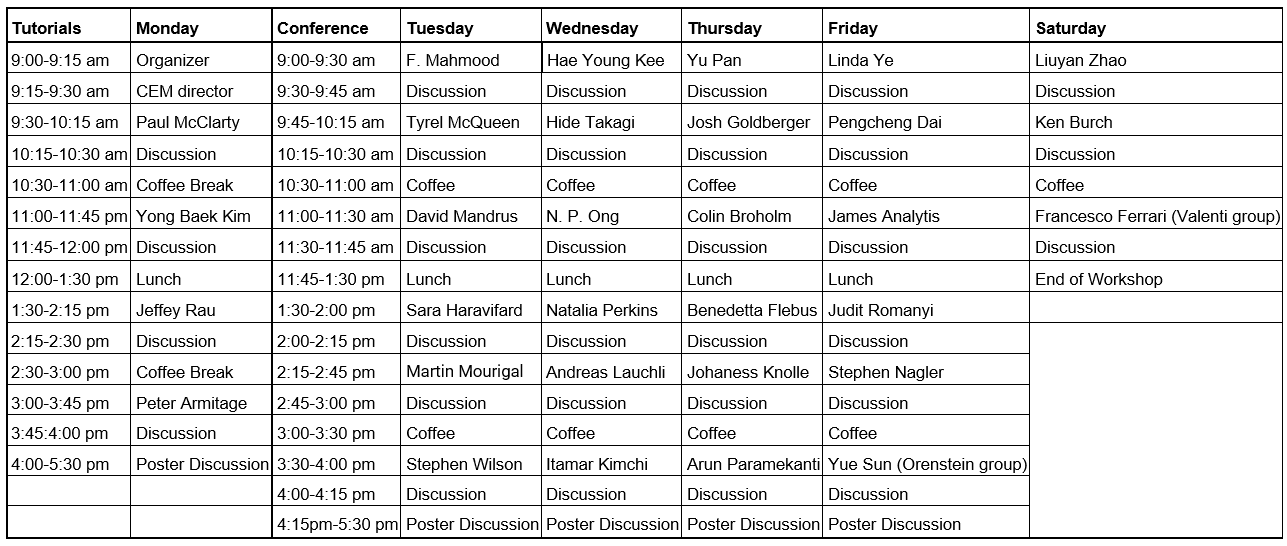Jump to:
Introduction | Topics | Invited Speakers | Venue & Lodging | Program & Abstracts | Schedule | Register
Dates
May 15-20
Location
The Ohio State University
Physics Research Building
191 W Woodruff Ave
Columbus, Ohio 43210
Description
Magnetism is a centerpiece of modern condensed matter physics and arises from strong electronic correlations in materials. In recent years, a plethora of topological phenomena has been discovered in condensed matter systems, shedding new light on the study of magnetism in strongly correlated materials. The motivation of the workshop “Topology and Fractionalization in Magnetic Materials” is to bring the experts together to discuss the most exciting new progress in the field of quantum magnetism, with emphasis on the aspects of topology and fractionalization.
This 6-day workshop will take place at the Physics Department of The Ohio State University, during May 15-20, 2023. It will consist of a one-day tutorial session (May 15) and a five-day conference (May 16-20).
Synthesis of new materials and new experimental probes are the keys to unveil new exotic phenomena. We have invited a strong group of chemists, physicists, and material scientists to discuss the newest developments in the frontier of magnetic materials. Experts on a range of experimental probes for magnetic excitations, including neutron scattering spectroscopy, optical spectroscopy, thermal, charge and spin transport, are invited to discuss the exciting new advances in study of magnetic materials.
Topological excitations in magnetic materials is a new emerging field, where many theoretical predictions, including a recent symmetry-based material search effort, await material realizations and experimental confirmations. We have invited theorists and experimentalists with expertise in this field to discuss recent progress in studying Hermitian and non-Hermitian topological magnons, and topological semimetals.
Frustrated magnetism is another main topic of this workshop, with a focus on quantum spin liquids and fractionalization. Combined efforts of new material discovery, experimental characterization and theoretical investigation have been instrumental for the identification and confirmation of quantum spin liquids and fractionalized excitations therein. We have invited experts with these different expertises to discuss timely advances in this fascinating yet challenging field.
We expect the workshop to achieve the following goals. First, the tutorial session will provide a timely review of literature and introductory education for young researchers entering this field. Second, the conference will provide an ideal platform for experts in the field to exchange their results, to generate new ideas and to initiate new collaborations. Finally, the gathering of many researchers with different expertise will allow us to examine the problems from a wide range of angles, to identify the main challenges, and to work out the solutions.
Organizers
Prof. Jos Heremans
Prof. Yuan-Ming Lu
Prof. Brian Skinner
Prof. Nandini Trivedi
Prof. Rolando Valdes Aguilar
International Advisory Committee
Claudia Felser (Max Planck Institute for Chemical Physics of Solids)
Hae Young Kee (University of Toronto)
Hidenori Takagi (Max Planck Institute for Solid State Research)
This workshop focuses on strongly correlated magnetic materials, with an emphasis on the topological and fractionalized excitations therein. Below is a list of topics covered by this workshop:
- New magnetic materials
- Design
- Computation
- Synthesis
- Topological excitations
- Topological magnons
- Non-Hermitian physics
- Topological semimetals
- Frustrated magnetism
- Quantum spin liquids and fractionalization
- Kitaev magnetism
- Experimental detection of fractionalization
- Experimental probes for magnetic excitations
- Thermal, charge and spin transport
- Neutron scattering spectroscopy
- Optical spectroscopy
James Analytis, University of California, Berkeley
Peter Armitage, Johns Hopkins University
Colin Broholm, Johns Hopkins University
Ken Burch, Boston College
Pengcheng Dai, Rice University
Francesco Ferrari, Goethe University Frankfurt (Germany)
Benedetta Flebus, Boston College
Joshua Goldberger, Ohio State University
Sara Haravifard, Duke University
Hae Young Kee, University of Toronto (Canada)
Yong Baek Kim, University of Toronto (Canada)
Itamar Kimchi, Georgia Institute of Technology
Johannes Knolle, Technical University of Munich (Germany)
Andreas Lauchli, Paul Scherrer Institute (Switzerland)
Fahad Mahmood, University of Illinois, Urbana-Champaign
David Mandrus, The University of Tennessee and Oak Ridge National Lab
Paul McClarty, Max Planck Institute for the Physics of Complex Systems (Germany)
Tyrel McQueen, Johns Hopkins University
Martin Mourigal, Georgia Institute of Technology
Stephen Nagler, Oak Ridge National Park
N. P. Ong, Princeton University
Yu Pan, Max Planck Institute for Chemical Physics of Solids (Germany)
Arun Paramekanti, University of Toronto (Canada)
Natalia Perkins, University of Minnesota
Jeffrey Rau, University of Windsor (Canada)
Judit Romanyi, University of California, Irvine
Yue Sun, University of California, Berkeley
Hideo Takagi, Max Planck Institute for Solid State Research (Germany)
Stephen Wilson, University of California, Santa Barbara
Linda Ye, California Institute of Technology
Liuyan Zhao, University of Michigan
Workshop Location
Physics Research Building (PRB)
191 W. Woodruff Ave.
Columbus, OH 43210
Hotel
Blackwell Inn
2110 Tuttle Park Pl
Columbus, OH 43210
Air Travel
The Columbus International Airport (CMH) is approximately 10 miles from Ohio State University.
There is currently no charge for registration.
Please use this survey link to register. Registration is now closed.
An administrator will be in touch with you following your submission.
Sponsor Support From



